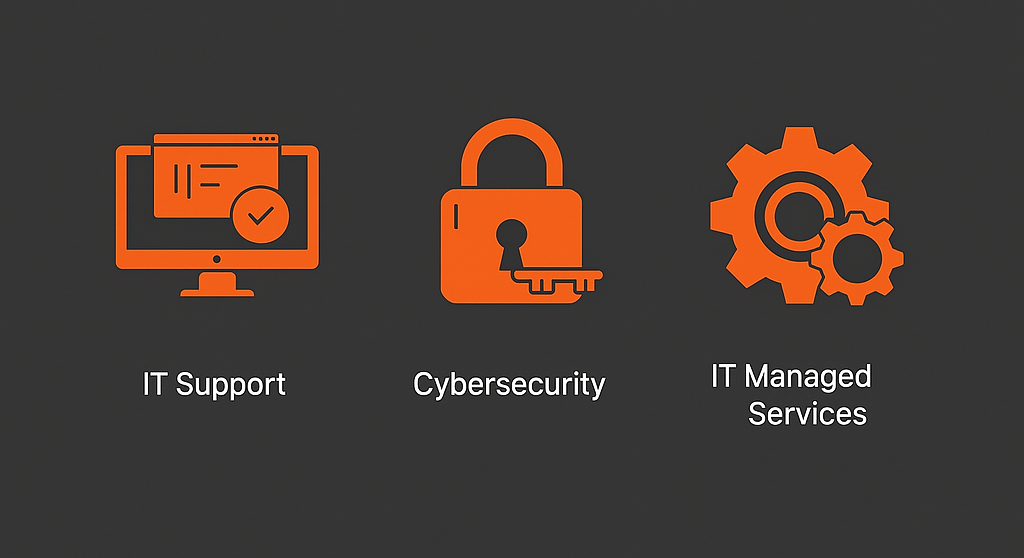Essential IT Services for Small Businesses: A Practical Guide

Technology Should Be an Engine, Not a Roadblock.
For small businesses, technology can either feel like a powerful engine that drives growth—or a frustrating obstacle that slows everything down. The difference usually comes down to whether you’re being intentional about how IT is managed.
You don’t need to become a tech expert to run a successful business, but you do need to make sure the right systems are in place. When done right, technology empowers your team to work efficiently, keep customers happy, and scale with confidence.
This guide breaks down the core technical areas every small business should focus on.
1. Proactive Technical Support
Waiting until something breaks to fix it is costly—in time, money, and customer trust. Proactive support ensures small issues don’t snowball into major problems.
This often looks like:
- Monitoring tools that alert you to problems before they cause downtime.
- Dedicated support channels (like a ticketing system or help desk email) so nothing slips through the cracks.
- Routine maintenance such as updating software, backing up data, and checking hardware health.
Example: Imagine your POS system going down during a busy lunch rush. With proactive monitoring, you could’ve spotted and fixed the issue at 9 a.m. instead of scrambling when customers are lined up at noon.
2. A Comprehensive Knowledge Base
A knowledge base is like a self-serve library for your business. Instead of calling IT every time someone forgets how to connect to Wi-Fi, employees can quickly search for a guide and solve the problem themselves.
Benefits include:
- Time savings for both employees and IT support.
- Consistency in how issues are resolved (everyone follows the same steps).
- Employee confidence when they can solve problems without waiting for help.
Pro Tip: Start small. Even five articles—like “Resetting Your Password,” “Printer Troubleshooting,” and “VPN Setup”—can make a big difference. Add new entries as questions come up, and over time you’ll have a resource that pays dividends.
3. Strategic IT Consulting
Technology isn’t just about keeping the lights on—it’s about driving the business forward. Strategic IT consulting helps you align your tech with your long-term goals.
Areas where consulting makes a difference:
- Cloud migration (when and how to move systems to the cloud).
- Cybersecurity planning (protecting data without overcomplicating things).
- Scalability (choosing tools that can grow with you instead of replacing them every two years).
Example: A retail business planning to open a second location can benefit from IT consulting that covers point-of-sale systems, inventory management, and secure network setup—before expansion headaches begin.
Building a Strong IT Foundation
Technology doesn’t have to be overwhelming. By focusing on proactive support, empowering employees with knowledge, and getting the right strategic advice, small businesses can turn IT from a necessary expense into a powerful driver of growth.
Need More Information?
This guide only scratches the surface. On our blog and knowledge base, you’ll find detailed tutorials, tool recommendations, and real-world strategies for making IT a strength in your business—not a roadblock.